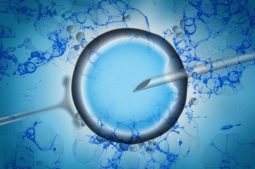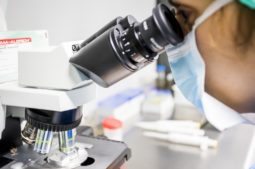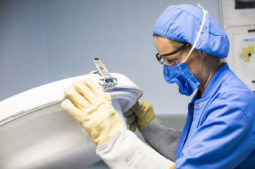At the 39th edition of the European Society of Human Reproduction and Embryology (ESHRE) Congress, we presented new research focused on diagnosing endometria with good and poor prognosis. This is now possible through the combination of Artificial Intelligence algorithms and transcriptomics.
What role does the endometrium play in carrying a pregnancy to term?
Infertility is one of the diseases of this century, with an increasing number of patients, primarily due to the rise in maternal age. It is well-known that as a woman’s age increases, the quality of her eggs decreases, resulting in a higher likelihood of embryos generated from these gametes facing challenges in implantation and achieving a pregnancy.
Nearly four decades have passed since the widespread use of IVF, and since then, research in this field has focused on improving embryonic quality. However, we now know that the endometrium also plays a crucial role, as it is the site where implantation and early development of the future individual take place.
Recognizing the significance of the endometrium, a study titled “A gene expression risk signature of endometrial failure for prognosis in In Vitro Fertilization (IVF) patients” has been presented during the ongoing congress held in the capital of Denmark.
“The research we present in this scientific framework, for the first time, and thanks to transcriptomics combined with artificial intelligence algorithms, offers a new method with a 95% accuracy in identifying genetic signatures that will help us distinguish endometria with good and poor prognosis before initiating reproductive treatment” explains Dr. Patricia Díaz-Gimeno, researcher at the IVI Foundation and supervisor of the study.
Identification of endometrial failures
Thanks to this study, in addition to the already explained pioneering identification of these endometrial profiles with good or poor prognosis, it will also be possible to distinguish relative risk differences three times higher in patients with poor prognosis, in terms of experiencing endometrial failures, whether it is implantation failure, biochemical miscarriage, or clinical miscarriage.
Until now, we have had tools for endometrial analysis that are based on identifying if they are displaced from the implantation window, without demonstrating substantial improvements in pregnancy rates for patients.
“While further lines of study are necessary for patients with poor-prognosis endometria, being able to distinguish them preventively through the method we presented at ESHRE is the starting point for researching new procedures that improve their diagnosis and treatment, avoiding the suffering of women and couples due to potential embryo loss, and simultaneously improving the chances of success in their reproductive processes. These promising results are another example of our strong commitment to personalized or precision medicine”, adds Dr. Díaz-Gimeno.
Over the past 40 years, the study of embryos has advanced to the point where we now have the ability to select embryos of better quality, resulting in a woman achieving pregnancy within the third attempt in 95% of cases.
“The objective of this research is to improve the endometrial factor in order to achieve that 95% success rate, not on the third attempt, but on the first. Currently, without controlling this factor, the probability of pregnancy on the first attempt is approximately 65%, or 68% in the specific case of IVI”, points out Dr. Díaz-Gimeno.
Communication between the endometrium and the embryo
Talking about reproductive failures, the origin can lie in the embryo, the endometrium, or a combination of both. In this regard, the compatibility between the embryo and the endometrium is important, as well as the communication between them, which are essential aspects for successful embryo implantation. This is the starting point of the study titled “Extracellular vesicles secreted by the maternal endometrium functionally regulate processes related to embryo development and implantation in human blastocyst,” supervised by Dr. Hortensia Ferrero, a researcher at the IVI Foundation. This study focuses on describing molecules secreted by the endometrium and captured by the embryo that are involved in the dialogue between the endometrium and the embryo, which may be behind implantation problems.
“The maternal endometrium secretes vesicles that are captured by human embryos, and when the contents of these vesicles enter the embryo, they regulate molecular mechanisms involved in improving embryo quality and consequently their competence for implantation. These findings demonstrate the importance of the communication system between the maternal endometrium and the embryo through these tiny sacs for successful implantation”, concludes Dr. Ferrero, the study’s supervisor.





Comments are closed here.